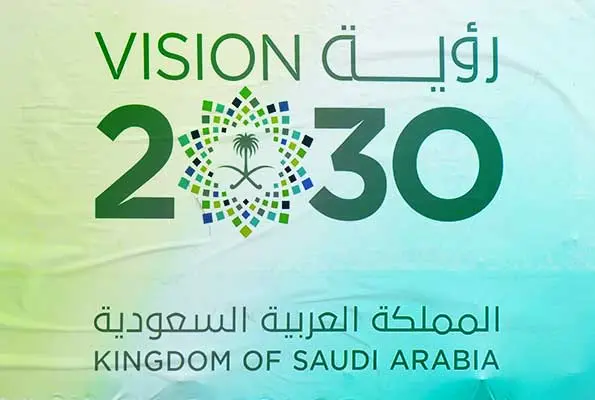Saudi Arabia Finance Minister Mohammed Al-Jaadan stated that the country is being cautious when predicting its oil revenues, which are its main source of income. This caution comes after having to scale back some of its Vision 2030 plans due to the price of crude oil remaining below $100 a barrel.
Recently, the price of WTI Crude, a global benchmark, was around $77.77 per barrel. Since the summer of 2022, it has not exceeded $100. Lower demand from China, both the world’s and Saudi Arabia’s largest crude oil customer, has led to global demand being lower than expected, which has kept prices low.
Saudi Crown Prince Mohammed bin Salman has introduced the Vision 2030 plan, aiming to reduce the country’s reliance on oil by investing in sectors like green energy, technology, and tourism. Currently, Saudi Arabia is the world’s largest crude oil exporter, but its economy has been impacted by the global drop in oil prices. Around 63% of the kingdom’s revenues come from oil.
During the Qatar Economic Forum in Doha, Jaadan cautioned that relying solely on oil can be both a blessing and a curse for a resource-rich country. This dependence can make a country vulnerable to the volatility of global demand and prices.
“We are not complacent; obviously we need to push through the momentum of reforming and transforming our economy, but we see the results,” he noted.
Gigaprojects like Neom and The Line are central to Saudi Arabia’s Vision 2030 plan. Last month, there were reports that the government had reduced its medium-term goals for Neom, the $1.5 trillion green megacity project in the middle of the desert, with The Line being its most significant subproject.
Originally, authorities had planned for 1.5 million residents to live in The Line, but they have now scaled back their ambitions to around 300,000. Analysts cite the low oil price as one of the key reasons for this downward revision.
When asked by the moderator if Saudi Arabia can still achieve these gigaproject plans if the price of oil continues to fall, Jaadan said, “We have actually been very conservative in our assumptions regarding our oil revenues.”
For example, the minister mentioned that Saudi Arabia ended 2023 with oil revenues that exceeded the government’s budget projections despite a 20% decrease in oil prices and a 17% drop in production.
He expressed confidence in this outcome due to the country’s conservative financial approach and its efforts to diversify revenue sources, with 37% of the GDP coming from non-oil sectors.
The minister also emphasised the importance of managing high spending to prevent inflation and economic imbalances.
“If you don’t allow your economy to catch up with your projects, basically what will happen is you’ll import a lot more,” Jadaan said.
The minister stated that Saudi Arabia may not have the necessary factories and capacity to support its plans. He suggested that giving it more time would be wise.
Additionally, he mentioned that the country’s private sector should be given a break from further government investment in order to catch up.


